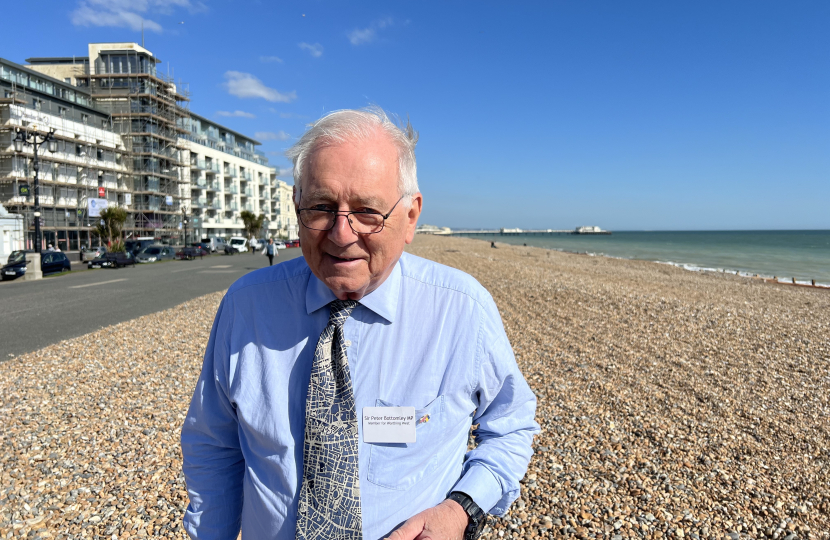
Rudyard Kipling wrote in his poem Sussex about our blunt, bow-headed, whale-backed Downs and the wooded goodness of the Weald. Sheep-bells and ship-bells rung along the hidden beach.
The reader could choose from Thames to Tweed; he would choose instead the Downs or the Head, finding the dry and sea-begotten walls, the ports of stranded pride. Here is the concluding verse:
“God gives all men all earth to love,
But since man’s heart is small,
Ordains for all one spot shall prove
Beloved over all.
Each to his choice , and I rejoice
The lot has fallen to me
In a fair ground – in a fair ground – Yea, Sussex by the sea!”
That, we presume, was the inspiration to William Ward-Higgins, the lawyer and songwriter who in 1907 produced the song Sussex by the Sea, also known as A Horse Galloping, probably for the wedding of his sister-in-law to an officer in the Royal Sussex Regiment.
It became the first march of the Royal Air Force because their Officers Training School No. 1 was at St Leonards-on-Sea. The late King Hussein of Jordan reportedly insisted the tune be played when he returned to the Royal Military Academy at Sandhurst.
I gave a talk to residents at Worthing’s St Barnabas House hospice about words and music. I included my favourites in Rustington. Hubert Parry is usually the composer with most music at Royal ceremonies at Westminster Abbey. One of his hymn tunes has the title Rustington.
The former Westminster school pupil Michael Flanders included the village in the introduction to the second verse of his song I’m a Gnu. Do listen to all the stories and songs in his comic partnership with the pianist and composer Donald Swann.
Donald kindly played at my leaving party when I left the Department of Transport to become minister for agriculture and for the environment in Northern Ireland. With two government car service staff who had each previously driven buses for London Transport, I sang the Flanders and Swann song A Transport of Delight about the driver and conductor of a London Omnibus, that ‘monarch of the road, observer of the highway code, that big six-wheeler, scarlet painted, London transport, diesel engine ninety-seven horsepower omnibus.’
When he was at a hospice, Donald wrote to me about not fearing death. During World War II he had served in the Friend’s Ambulance Unit, the Quaker relief organisation, in Egypt, Palestine and Greece.
Many might see him as typically English. In a way, he was, showing we are a nation, not a race. His mother was a nurse with Turkmenistan and Russian ancestry. Her family were refugees from the Russian revolution. Donald’s father was a medical doctor descended from a Lincolnshire draper who married a daughter of the horologer to the tsars.
The ‘Where are you from?’ question often leads to stories of world history, showing the consequences of war, revolution and mass or minor movements of people.
I am proud that we live together, side by side, faith with faith in a society and in communities where national background, skin colour, orientation or socio-economic group do not determine friendships or marriages.
We work together and we holiday together. Michael Flanders came to our south coast for holidays with his wife Claudia. She was expert on travelling with her husband and his wheelchair. She advised my advisory group that became the Mobility committee, encouraging the identification and elimination of obstacles to movement. More progress has to be achieved.
Most footpaths and bridleways can be adapted, with alternatives to stiles and gates that may block passage to all but the athletic. One of my successes was giving twelve years advance notice that all London taxis should be able to accept a normal size wheelchair by the Millennium year.
One of the taxi trade traditions has been driving veterans in convoy to be reviewed at Worthing Town Hall. Sussex By The Sea for all!



